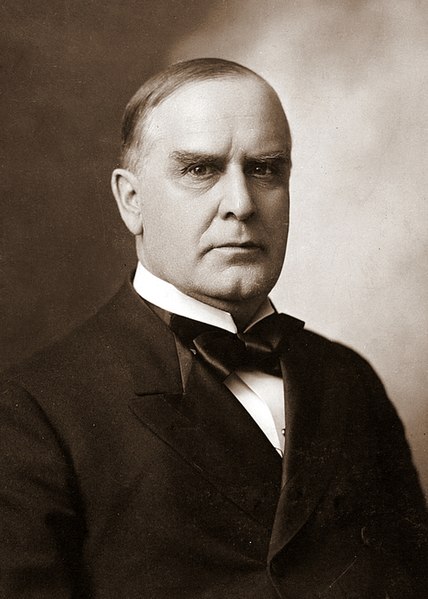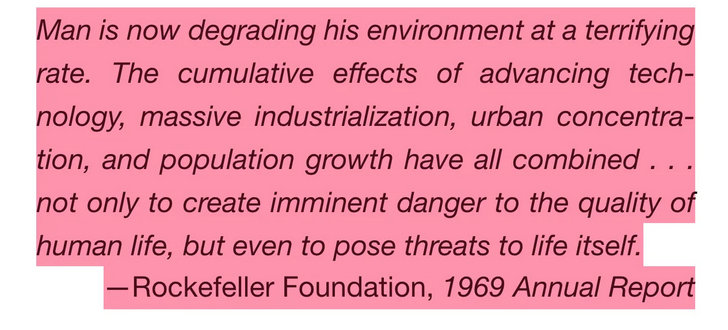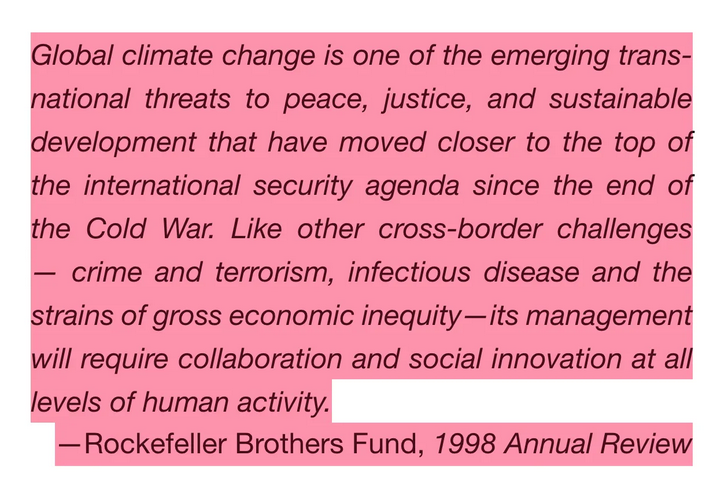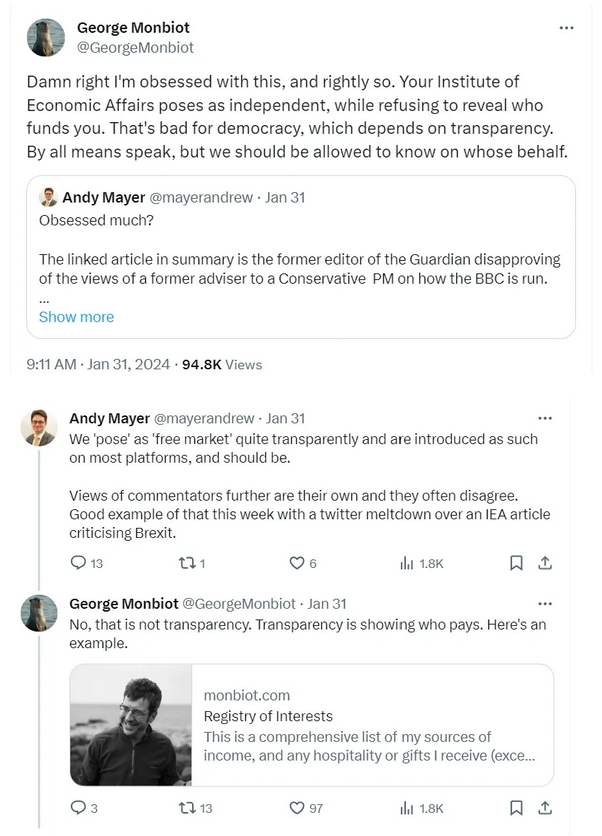Feral Historian
Published 29 Mar 2023Serenity did an admirable job of wrapping up Firefly after the series was cancelled. But the ending, which depends on the idea that exposing government misdeeds forces change, doesn’t work today. Serenity‘s ending is premised on the idea that “sunshine is the best disinfectant” but the last few years have illustrated that we’re dealing with sunlight-resistant corruption these days.
00:00 Intro
00:24 Backstory
01:27 Chimerica
02:08 Unification
03:37 Secrets
05:12 Serenity‘s Ending
February 21, 2025
Firefly and the End of Serenity
January 31, 2025
QotD: “Did you know the government faked the moon landings?”
This is a deeply stupid thing to believe, and if you believed it in the 20th century I had nothing but mockery for you.
Today I am compelled to much more sympathy with people who have come to believe that. It’s still objectively stupid, but I understand how they got there. It’s an interaction between a low-trust, polluted information environment and the cheater-detection module wired into human brains.
If you pose people a logic problem phrased in two different ways, one of which is “spot the cheater” and one of which is not, they’ll do substantially better on the first version. We are social animals who survived by forming trust networks, and for millions of years spotting the cheater was a life or death matter.
Now put yourself in the shoes of a person of average intelligence — not very good at following complex arguments or extracting generative patterns from large masses of evidence. This person has gradually become aware over the last quarter century that public information sources are saturated with lies. The media is corrupt and partisan, corporations deceive to boost their profits, education is ideologically captured, and governments constantly peddle vast falsehoods to gain compliance.
In this environment, and given the capacity limitations of the average human, the cheater-detection module goes into overdrive. The least bad strategy is to try to spot the worst liars and then believe the opposite of everything they say.
“The moon landings were faked” has to be understood as a symptom not of individual insanity, but of governing institutions and elite classes who have repeatedly burned up their long-term credibility for short-term gains.
This trend had been building for a long time, but undoubtedly culminated with the series of colossal lies, blunders, and “we’ve always been at war with Eastasia” reversals around COVID.
I wish I knew a way back from this. I’m not sure anything less than the abolition of secrecy could do it.
ESR, Twitter, 2024-10-27.
November 10, 2024
The 1896 US Presidential election
In the latest SHuSH newsletter, Ken Whyte looks back to the 1896 contest between William McKinley and William Jennings Bryan:
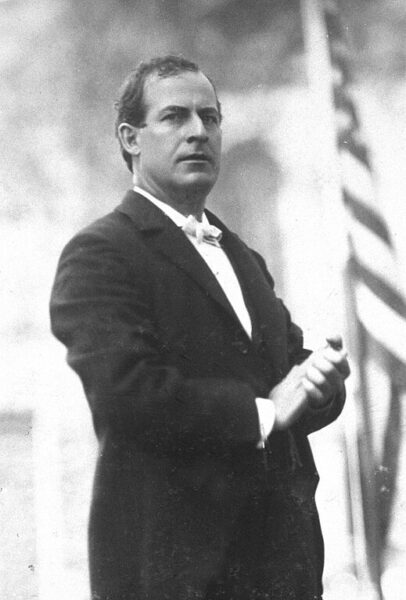
William Jennings Bryan, Democratic party presidential candidate, standing on stage next to American flag, 3 October 1896.
LOC photo LC-USZC2-6259 via Wikimedia Commons.
The 1880s and 1890s saw an enormous expansion in the number of newspapers in America. New printing technologies had drastically reduced barriers to entry in the newspaper field, while the emergence of consumer advertising was making the business more lucrative. By the election of 1896, there were forty-eight daily newspapers in New York (Brooklyn had several more), each vying for the attention of some portion of the city’s three million souls. The major papers routinely produced three or four editions a day, and as many as a dozen on a hot news day, making for a 24/7 news environment long before the term was coined. The individual newspapers were distinguished by their politics, ethnic, and class orientations. They advocated vigorously, often shamelessly, and occasionally dishonestly for the interests of their readers. Similar dynamics were afoot everywhere. America, in the 1890s, was noisy as hell.
Republican nominee William McKinley was the respectable candidate in 1896, heavily favoured. He had a state-of-the-art organization, buckets of money, and vast newspaper support, even among important Democratic publishers such as Joseph Pulitzer. The Democrats fielded William Jennings Bryan, who looked to be the weak link in his own campaign. He was a relatively unknown and untested ex-congressman from Nebraska, just thirty-six-years-old, a messianic populist with a mesmerizing voice and radical views. A last-minute candidate, he was selected on the convention floor over Richard P. Bland, against the protests of the party establishment.
Bryan broke all the norms of politics in 1896. At the time, it was believed that the dignified approach to campaigning was to sit on one’s porch and let party professionals speak on one’s behalf. Grover Cleveland had made eight speeches and journeyed 312 miles in his three presidential campaigns (1884, 1888, 1892). Bryan spent almost his entire campaign on the rails, holding rallies in town after town. He travelled 18,000 miles and talked to as many as five million Americans. He unabashedly championed the indigent and oppressed against Wall Street and Washington elites.
Inflation was the central issue of the 1896 campaign. The US was on the gold standard at the time, meaning that the amount of money in circulation was limited by the amount of gold held by the treasury. Gold happened to be scarce, resulting in an extended period of deflation, a central factor in the major economic depression of the early 1890s. The effects were felt disproportionately by the poor and working class. Bryan advocated the monetization of silver (in addition to gold) as a means of increasing the money supply and reflating the economy. This was viewed by the establishment as an economic heresy (not so much today). Bryan was viewed as a saviour by his followers, and that’s certainly how he saw himself.
The New York Sun heard among the Democrats “the murmur of the assailants of existing institutions, the shriek of the wild-eyed”. The New York Herald warned that Bryan’s supporters, disproportionately in the west and south, represented “populism and Communism” and “crimes against the nation” on par with secession. The New York Tribune warned that the Democrats’ “burn-down-your-cities platform” would lead to pillage and riot and “deform the human soul”. The New York Times asked, in all sincerity, “Is Mr. Bryan Crazy?” and spoke to a prominent alienist who was convinced that the election of the Democrat would put “a madman in the White House”. That Bryan’s support was especially strong among new Americans — the nation was amid an unprecedented wave of immigration — was especially disconcerting to the establishment. His followers were a “freaky”, “howling”, “aggregation of aliens”, according to the Times.
The only major New York newspaper to support the Democrats that season was Hearst’s New York Journal, a new, inexpensive, and wildly popular daily. I wrote about this in The Uncrowned King: The Sensational Rise of William Randolph Hearst. Loathed by the afore-mentioned respectable sheets, the Journal became the de facto publicity arm of the Bryan campaign and Hearst became the Elon Musk of his time.
The unobjectionable McKinley didn’t offer Democrats much of a target, but his campaign was being managed and funded by Ohio shipping and steel magnate Mark Hanna. The Journal had learned that Hanna and a syndicate of wealthy Republicans had previously bailed out McKinley from a failed business venture. Hearst’s cartoonists portrayed Hanna as a rapacious plutocratic brute (accessorized with bulging sacks of money or the white skulls of laborers) and McKinley as his trained monkey or puppet: “No one reaches the McKinley eye or speaks one word to the McKinley ear without the password of Hanna. He has McKinley in his clutch as ever did hawk have chicken … Hanna and his syndicate are breaking and buying and begging and bullying a road for McKinley to the White House. And when he’s there, Hanna and the others will shuffle him and deal him like a deck of cards.” The cartoons were criticized as cruel, distorted, and perverted. They were hugely effective.
Caught off guard by Bryan’s tactics, but unwilling to put McKinley on the road, Hanna instead arranged for 750,000 people from thirty states to visit Canton, Ohio and see McKinley speak from his front porch. He meanwhile made some of the most audacious fundraising pitches Wall Street had ever heard. Instead of asking for donations, he “levied” banks and insurers a percentage of their assets, demanding the Carnegies, Rockefellers, and Morgans pay to defend the American way from democratic monetary lunatics. Standard Oil alone coughed up $250,000 (the entire Bryan campaign spent about $350,000). Hanna printed and distributed a mind-boggling 250 million documents to a US population of about 70 million (the mails were the social media of the day), and fielded 1,400 speakers to spread the Republican gospel from town to town. All of this was unprecedented.
The Republicans generated their own conspiracy theories to counter the stories about Hanna’s controlling syndicate. Pulitzer’s New York World published a series of articles on The Great Silver Trust Conspiracy — “the richest, the most powerful and the most rapacious trust in the United States”. Bryan was said to be a puppet of this “secret silver society”, for which the World had no evidence beyond that the candidate was popular in silver mining states.
There were violent motifs throughout the campaign. The Republicans accused the Democrats of fostering division and rebellion, threatening national unity by pitting the south and the west against the east and the Mid-West. This was charged language with the Civil War still in living memory. Hanna funded a Patriotic Heroes’ Battalion comprising Union army generals who held 276 meetings in the last months of the campaign. They would ride out in full uniforms to a bugle call, advising the old soldiers who came out to see them to “vote as they shot”. Said one of their number: “The rebellion grew out of sectionalism … We cannot tolerate, will not tolerate, any man representing any party who attempts again to disregard the solemn admonitions of Washington to frown down upon any attempt to set one portion of the country against another.” Senior New York Republicans vowed that if the Democrats were elected, “we will not abide the decision”. These belligerent tactics were cheered by the majority of New York papers.
Democratic and populist leader William Jennings Bryan, climaxed his career when when he gave his famous “Cross of Gold” speech which won him the nomination at the age of 36.
Grant Hamilton cartoon for Judge magazine, 1896 via Wikimedia Commons.Bryan did nothing to cool tempers by claiming, in his famous “cross of gold” speech, that he and working-class Americans were being crucified by financial and political elites.
On it went. There were many echoes of 1896 in 2024. The polarized electorate, the last-minute candidate, record spending, unprecedented campaign tactics, populism and personal charisma, relentless ad hominem attacks, class and culture and regional warfare, inflation, immigration, racism, misinformation and conspiracy theories, comedians and plutocrats, threats of authoritarianism and violence and revolution, all of it massively amplified, and sometimes generated, by messy new media.
Of course, some of the echoes are coincidental, and there are also many contrasts. It was a different electorate. The alignment of the parties bore little resemblance to what we see today. Bryan, aside from his megalomania and zealotry, was as personally decent as Trump isn’t. And Bryan lost the campaign.
My point is I don’t think it’s an accident that the likes of Bryan and Trump — mavericks who thoroughly dominate their parties (both thrice nominated) through a direct and unshakeable bond with their followers — surface when the public sphere is most chaotic. New media environments, by their nature, are amateurish, turbulent, unsettling. There are fewer guardrails, which is a major reason outsiders and their followers gravitate to them. They see a way to change the rules and end-run established media (establishment candidates are naturally more comfortable using established channels to reach voters). New forms of political communication develop, contributing to new political norms, tactics, and strategies, and long-lasting political realignments.
For better or worse.
July 23, 2024
Claim – “Everybody wants Gaza’s gas”
Tim Worstall explains why the popular idea that it’s demand for the natural gas reserves that sit under Palestine that is driving much of the situation in the Middle East is utter codswallop:

“Oil Platform in the Santa Barbara Channel, California” by Ken Lund is licensed under CC BY-SA 2.0 .
So we’ve a big thing about how all this fighting in Gaza is really about fossil fuels. @JamesMelville seems to think it’s true:
“Everybody wants Gaza’s gas.”
Oil and gas reserves – that’s the real proxy war in the Middle East.
This video provides a really succinct summary of the situation.
This “really succinct” summary includes the idea that the invasion of Iraq was all about access to that country’s oil. Which is very silly indeed. Before the war people paid Iraq for the oil. During the war people paid Iraq for the oil. After the war people are paying Iraq for the oil. The war hasn’t changed Iraq’s oil price — the global oil price has changed it, but not the war — and so the effect of the war upon access to Iraq’s oil has been, well, it’s been zero.
No, it’s not possible to then go off and say that Iraq wouldn’t sell to Americans and that’s why or anything like that. The US didn’t buy much Middle East oil anyway — mainly West African instead. But more than that, this is idiocy about how commodity markets work.
This is something we can test with a more recent example. So, there are sanctions on Russian oil these days over Ukraine. Western Europe, the US, doesn’t buy Russian oil. Russia is still exporting about what it used to. Because it’s a commodity, oil is.
What’s happening is that the Russian oil that used to come to Europe now goes to — say — India. And the Far East, or Middle East, whatever, oil that used to go to India now comes to Europe (the US is now a net exporter itself). Because that’s what happens with commodities. The very name, commodity, means they are substitutable. So, if one particular source cannot sell to one particular user then there’s a bit of a reshuffle. The same oil gets produced, the same oil gets consumed, it’s just the consumption has been moved around a bit and is now by different people. The net effect of sanctions on Russian oil has been, more or less, to increase the profits of those who run oil tankers. Ho Hum.
We’re also treated to the revelation that the US wants everyone to use liquefied natural gas because the US is the big exporter of LNG (well, it’s one). Therefore the US insists that Israel must develop the LNG fields off Gaza. Which is insane. If you’re an exporter you don’t want to start insisting on the start up of your own competition. The US demanding that the LNG not be produced at all would make logical sense but that’s not how conspirazoid ignorance works, is it? It has to be both a conspiracy and also a ludicrous one.
And a third claim. That this natural gas off Gaza is really worth $500 billion. That’s half a trillion dollars. We’ve looked at this value of gas off Gaza claim before and it’s tittery. $4 billion (that’s four billion, not five hundred billion) might be a reasonable claim and that’s just not enough to go to war over.
July 8, 2024
All the conspiracists seem to find room for the Rockefellers in their theories
Elizabeth Nickson on a new book by Jacob Nordangård that illustrates just how important Rockefeller funding is to so many activists and the environmental pressure groups that deploy them:
In the climate change arena, the Rockefellers call the shots. The whole thing was their idea, they took a silly but interesting theory and amped it up with hundreds and hundreds of million of dollars. They founded institutions and linked the survival of those institutions to promoting climate change and population reduction. They adopted one likely politician after another.
The Rockefellers have created 990 Climate Change activist organizations. They give them directions, financing, and launch them on the world. The Green Movement was started, financed, organized, and militarized by the Rockefellers. By the late 40’s the family was all in, on the same page. In the 50’s they began to stand up countless institutions, committees, university departments, university institutes, foundations, and policy shops gathered around this one idea, as below:
Let’s just pause here and recognize that the United States and Canada are 5% developed. If it were 50%, then maybe we would have reason to worry about the effects of trace gas that takes up .04% of the atmosphere, of which 3% is currently contributed to by humans. But were we to have that level of development, our science would have long ago solved the problem. Our sense of proportion, size and consequence has been twisted, propagandized via hundreds of billions of purposed dollars. And all of it is exaggerated science done by scientists compromised by Rockefeller money.
By 1998, the Rockefeller family had swept the table clean of any opposition to this one idea. Any scientist not on board with the agenda was imperiled. Any university department not working towards this one artificial goal, was in danger of being marginalized. Infiltration had begun into every media organization, every entertainment division of every major corporation. This, as stated below, would be a generational goal. For everyone. Or get off the bus.
What is evidentiary, what can be proved in a court of law, rather than opinion, however, is that the Fabians started the idea of this whole one-world, no nation state. It is clear too that after the First World War, the Fabians roped in the second generation of Rockefellers. It was a major catch. It meant they had America. And it was spiritual. It was meant to change mankind, to kill off Homo Sapiens and turn us to Homo Universalis.
The New Man would be not-Christian, quietist, and self-obsessed. The economy would trend towards zero-growth if not de-growth. There is a preponderance of data, many many publications that laid out their plans. They twisted education away from practical science, engineering and building things towards social movements, the humanities, the arts, and pleasure. And via Laurance Rockefeller’s money and organizational skill, they devised and invented the discipline of cybernetics from which the internet flows.
“See, Trump’s plan is … Christofascist ethnic cleansing. It’s all so obvious now, isn’t it?”
Chris Bray finds the stupid so painful that it hurts:
I was worried, a year ago, about an election-year decline into hysteria and evil. What I didn’t see was the descent into grinding moronization.
“They want to dismantle the administrative state and give more power to the executive branch.” I … can’t. I just can’t. It’s like somebody made a special kind of rice cereal for infants that replaces the rice with shit. It’s sewage gruel for toothless adult babies. It’s like saying “they want to take power away from judges and transfer it to the judicial branch”, but that doesn’t really begin to do justice to the stupidity of these statements.
Similarly, this segment on MSNBC warns that Trump is planning to “bring the agencies under the umbrella of the executive branch”.
Imagine living in a world where the Department of Commerce was part of the executive branch. And on and on and on. […]
See, Trump’s plan is … Christofascist ethnic cleansing. It’s all so obvious now, isn’t it?
June 29, 2024
QotD: The kooks and conspiracy theorists have a better track record than CNN
Right wing Americans need their own version of consciousness raising and appreciating the “different ways of knowing” marginalized white Americans and right wingers have.
We’ve been trained by generations of left wing television, schooling, and academia to defer and treat the most noxious and stupid bleatings of uninformed women, non-whites, gays, and religious minorities as sacrosanct pieces of insight we’re supposed to wrestle with … whilst at the same time we’ve been treated to presume any white male over a certain age with unusual mannerisms or a disregard for left wing shibboleths is dangerously low status and deranged, when in reality it is the opposite.
Looking at the past 50-60 years, the Grumpy Granddads, hilly-billy mystics, and aging conspiracy theorists have consistently been more right than the mainstream.
If in 2002 you had to pre-commit to believing everything Alex Jones said, or everything CNN said for the next 20 years … You’d have been a fool to pick CNN. Indeed if you took their diet and medical advice you’d probably be dead.
The Archie Bunkers and Deryl Gribbles have consistently been years ahead of the mainline right for seeing the truths of the regime.
Now obviously like Greek heroes consulting the oracle at Delphi, or spirit questers visiting shamans … you have to assume you won’t understand half of what they say, most of it will fly over your head, and a good chunk probably isn’t even meant for you but the other spirits in the room …
But the signal to noise ratio of our hermits and kooks are thousands of miles beyond whatever left wing diversity chicks are getting from the native grifters they entertain at their campus events or the black “we wuz” consciousness raisers they shovel money at.
The old white shamans have been resisting the government since decades before you were born and they remember the all the little episodes official history likes to forget.
Like a young a adept consulting an old sage or a seeker consulting an old monk do not say “I don’t believe that” instead say “Hmm …” or “I am not yet that far down the path”.
Kulak, “The Myth of the Stupid Right”, Anarchonomicon, 2024-03-28.
June 22, 2024
The Curious Case of Hitler’s Corpse – War Against Humanity 136
World War Two
Published 21 Jun 2024Joseph Stalin claims that Adolf Hitler managed to escape Berlin and is now living somewhere in hiding. It’s complete nonsense of course. But it raises some interesting questions. What remains do we have of Hitler? How do we know they belong to the Fuhrer? And, why is Stalin spreading these far-fetched lies?
(more…)
June 18, 2024
Freddie deBoer contra J.J. McCullough on Conspiracy Theories
I saw JJ’s latest video pop up on my YouTube subscriptions page, read the headline and winced slightly. I generally like JJ’s videos even when I disagree with his presentation or interpretation and from the title, I thought “No, ‘many conspiracy theories’ did NOT ‘turn out to be true'” would require a fair bit of, uh, curation of the theories that get discussed. Freddie deBoer — who I disagree with much more than I do with McCullough — had a similar reaction:
The latest video from conservative Canadian YouTuber JJ McCullough displays many of the attributes that make his perspective unique — he’s genuinely a right-wing figure but an arch institutionalist, a gay Millennial with the kind of vague social libertinism common to a lot of libertarian-leaning conservatives but something of a scold, a Canadian patriot who relentlessly defends the United States from the kinds of criticism of Americanah that you might associate with Europe or, well, Canada — critiques of our provincialism, our consumerism, our boorish tendency to shove the rest of the world around. McCullough likes all of that stuff, more or less, while living a cosmopolitan and vaguely-arty lifestyle in groovy Vancouver. He’s perhaps best known for his war with Montreal, Francophone Canadians, and the entire province of Quebec, which fits his general esteem for a certain kind of capital-R Reasonable Anglophilia.
He reminds me, strangely, of a certain kind of secular anti-atheist, the type who still gets mad about the New Atheists despite the complete collapse of that subculture and whose own lack of belief doesn’t prevent them from waxing poetic about the glories of religion. I have a friend from grad school who grew up in an extremely repressive Christian community when she was young, and who describes leaving as an “escape”. (The kind of community where she and her sisters wore wrist-to-ankle dresses every day of their lives no matter the Oklahoma heat, weren’t allowed TV or radio, absorbed lots of corporal punishment, that sort of thing.) She has very, very little patience for people who are so annoyed by internet atheists that they become in effect advocates for religion; as she says, this kind of vague fondness for religion among the irreligious could only occur to someone who never had to live the way she did. I sort of see the same thing in McCullough — he idealizes certain aspects of America’s ethos because he has never had to live with the consequences of being surrounded by people who believe in it, who consciously or unconsciously demand that everyone else believe in it.
Anyhow, this new video is about conspiracy theories. Conspiracy theories are a good topic for understanding McCullough’s very particular ideological makeup. Conspiracy theories are famously a cross-ideological phenomenon, with both left conspiracy theories and right conspiracy theories but also conspiracy theories that don’t fit neatly into either, like 9/11 trutherism. As I said, McCullough is an institutionalist, a small-but-good government sort of guy (or so I take it) who places a great deal of value in official claims, institutions, and experts, and so he’s naturally distrustful of conspiracy theories. And he demonstrates that antipathy in this video through poking holes in a few clickbaity articles listing conspiracy theories that turned out to be true. This all amounts to feasting on a banquet of low-hanging fruit, but it’s not an illegitimate way to approach the question. I just don’t like his conclusions.
The key to McCullough’s bit here is that he doesn’t dispute that the named conspiracy theories (or “conspiracy theories”) that are asserted to be true are true. Rather, he operates by insisting that every identified conspiracy theory is in fact not a conspiracy theory according to his preferred definition. It’s not sufficient for a conspiracy theory to be broadly thought of as a conspiracy theory; it has to comport to specific rules he has devised for what a conspiracy theory entails. Effectively, that means that a conspiracy theory is only a conspiracy theory if it satisfies criteria endorsed by no one but JJ McCullough. I can’t decide if this is an isolated demand for rigor or a No True Scotsman, but either way, McCullough is here insisting on an unusually stringent definition of a conspiracy theory for the purpose of dismissing the idea that any conspiracy theories are true. And there’s a version of this that isn’t entirely wrong; there’s a tautological sense in which all conspiracy theories are false because being false is part of that definition of a conspiracy theory. But McCullough isn’t using that definition, just a particularly odd one that makes his task easier.
So the fact that cigarette manufacturers knew that cigarettes were very bad for your health but conspired to hide this fact from the public is not a conspiracy theory, according to McCullough, because other people of that era suspected that cigarettes caused lung cancer. (Actually proving that took a very long time, at least according to modern standards of causality.) I find this argument powerfully strange! You had a group of powerful people, they indisputably knew that cigarettes were very bad for your health, they indisputably conspired to suppress that information, they were fairly effective at that task. The fact that some early whistleblowers tried to raise the alarm is simply irrelevant. Check out my own proprietary formula.
Group of Powerful or Influential People + Nefarious Intent + Secrecy + Active Conspiring + Negative Consequences, Real or Potential = Conspiracy TheoryThat’s a conspiracy, brother, and the tobacco company bad behavior fits. Long before information about their coverups became public knowledge, people were talking about the possibility that the tobacco companies were up to that exact bad behavior. Theorizing, you might say.
June 1, 2024
So who did write Shakespeare’s plays?
Mere mortals might be tempted to answer “Well, Shakespeare, duh!”, but to the dedicated conspiracist, the obvious is never the right answer:

This was long thought to be the only portrait of William Shakespeare that had any claim to have been painted from life, until another possible life portrait, the Cobbe portrait, was revealed in 2009. The portrait is known as the “Chandos portrait” after a previous owner, James Brydges, 1st Duke of Chandos. It was the first portrait to be acquired by the National Portrait Gallery in 1856. The artist may be by a painter called John Taylor who was an important member of the Painter-Stainers’ Company.
National Portrait Gallery image via Wikimedia Commons.
Was Shakespeare a fraud? The American writer Jodi Picoult seems to think so. Her latest novel By Any Other Name is based on the premise that William Shakespeare was not the real author of his plays. Specifically, in her story, the poet Emilia Lanier (née Bassano) pays Shakespeare for the use of his name so that she might see her work staged at a time when female playwrights were extremely rare.
The theory that Shakespeare was a woman isn’t original to Picoult. As with all conspiracy theories relating to the bard, the “true” Shakespeare is identified as one of the upper echelons of society (although not an aristocrat, Lanier was part of the minor gentry thanks to her father’s appointment as court musician to Queen Elizabeth I). Those known as “anti-Stratfordians” – i.e., those who believe that the man from Stratford-upon-Avon called William Shakespeare did not write the plays attributed to him – invariably favour candidates who had direct connections to the court. The general feeling seems to be that a middle-class lad from a remote country town could not possibly have created such compelling depictions of lords, ladies, kings and queens.
[…]
The notion that the actor Shakespeare could have hired out his identity to Lanier, or anyone else for that matter, makes no sense if one considers the collaborative nature of the theatrical medium. Shakespeare was the house playwright for the Lord Chamberlain’s Men (the company that became the King’s Men on the accession of James I). His job was to oversee productions, to write on the hoof, to adapt existing scripts in the process of rehearsal. (This is probably why his later plays such as Henry VIII contain so many stage directions; at this point he was almost certainly residing in Stratford-upon-Avon, and so was not available to provide the necessary detail in person.) It was never simply a matter of Shakespeare dropping off his latest script at The Globe and quickly scarpering. If he was being fed the lines, it is implausible that nobody in the company would have noticed.
[…]
The theory that Shakespeare’s contemporaries – fans and critics alike – would all collude in an elaborate deception requires a full explanation. The burden of proof is very much on the anti-Stratfordians, but proof doesn’t appear to be their priority. They seem to think they know more about Shakespeare than those who actually lived and worked with him. It’s oddly hubristic.
All of this nonsense began with the Baconian theory propounded by James Wilmot in 1785 and has never gone away. The candidates are usually university educated and aristocratic: Francis Bacon, Christopher Marlowe, the Earl of Rutland, the Earl of Oxford – even Queen Elizabeth I has been proposed. The anti-Stratfordian position seems to be based on a combination of class snobbery and presentism. They assume that the middle-class son of a glover who did not attend university could not have developed the range of knowledge needed to inform his plays. They forgot, or do not know, that the grammar school education of the time would have provided a firm grounding in the classics. Shakespeare would have been steeped in Ovid, Cicero, Plautus, Terence, and much more besides. Let’s not forget that Ben Jonson, the most scholarly of all his contemporaries, didn’t go to university either.
Moreover, the plays make clear that Shakespeare was a voracious reader. The idea that one must have direct experience in order to write about a subject is very much in keeping with the obsessions of our time, particularly the notion of “lived experience” and how writers ought to “stay in their lane”.
As I’ve joked in the past, I believe the theory that Homer didn’t actually write The Iliad and The Odyssey … it was another Greek chap of the same name.
April 4, 2024
Boeing and the ongoing competency crisis
Niccolo Soldo on the pitiful state of Boeing within the larger social issues of collapsing social trust and blatantly declining competence in almost everything:

“Boeing 521 427”by pmbell64 is licensed under CC BY-SA 2.0
By now, most of you have heard of the increasingly popular concept known as “the competency crisis”. For those of you who haven’t, the competency crisis argues that the USA is headed towards a crisis in which critical infrastructure and important manufacturing will suffer a catastrophic decline in competency due to the fact that the people (almost all males) who know how to build/run these things are retiring, and there is no one available to fill these roles once they’re gone. The competency crisis is one of the major points brought up by people when they point out that America is in a state of decline.
As all of you are already aware, there is also a general collapse in trust in governing institutions in the USA (and all across the West). Cynicism is the order of the day, with people naturally assuming that they are being lied to constantly by the ruling elites, whether in media, government, the corporate world, and so on. A competency crisis paired with a collapse in trust in key institutions is a vicious one-two punch for any country to absorb. Nowhere is this one-two combo more evident than in one of America’s crown jewels: Boeing.
I’m certain that all of you are familiar with the “suicide” of John Barnett that happened almost a month ago. John Barnett was a Quality Control Manager working for Boeing in the Charleston, South Carolina operation. He was a “lifer”, in that he spent his entire career at Boeing. He was also a whistleblower. His “suicide” via a gunshot wound to the right temple happened on what was scheduled to be the third and last day of his deposition in his case against his former employer.
In more innocent and less cynical times, the suggestion that he was murdered would have had currency only in conspiratorial circles, serving as fodder for programs like the Art Bell Show. But we are in a different world now, and to suggest that Barnett might have been killed for turning whistleblower earns one replies like “could be”, “I’m pretty sure that’s the case”, and the most common one of all: “I wouldn’t doubt it”. No one believes that Jeffrey Epstein killed himself. Many people believe the same about John Barnett. The collapse in trust in ruling institutions has resulted in an environment where conspiratorial thinking naturally flourishes. Maureen Tkacik reports on Boeing’s downward turn, using Barnett’s case as a centre piece:
“John is very knowledgeable almost to a fault, as it gets in the way at times when issues arise,” the boss wrote in one of his withering performance reviews, downgrading Barnett’s rating from a 40 all the way to a 15 in an assessment that cast the 26-year quality manager, who was known as “Swampy” for his easy Louisiana drawl, as an anal-retentive prick whose pedantry was antagonizing his colleagues. The truth, by contrast, was self-evident to anyone who spent five minutes in his presence: John Barnett, who raced cars in his spare time and seemed “high on life” according to one former colleague, was a “great, fun boss that loved Boeing and was willing to share his knowledge with everyone,” as one of his former quality technicians would later recall.
Please keep in mind that this report offers up only one side of the story.
A decaying institution:
But Swampy was mired in an institution that was in a perpetual state of unlearning all the lessons it had absorbed over a 90-year ascent to the pinnacle of global manufacturing. Like most neoliberal institutions, Boeing had come under the spell of a seductive new theory of “knowledge” that essentially reduced the whole concept to a combination of intellectual property, trade secrets, and data, discarding “thought” and “understanding” and “complex reasoning” possessed by a skilled and experienced workforce as essentially not worth the increased health care costs. CEO Jim McNerney, who joined Boeing in 2005, had last helmed 3M, where management as he saw it had “overvalued experience and undervalued leadership” before he purged the veterans into early retirement.
“Prince Jim” — as some long-timers used to call him — repeatedly invoked a slur for longtime engineers and skilled machinists in the obligatory vanity “leadership” book he co-wrote. Those who cared too much about the integrity of the planes and not enough about the stock price were “phenomenally talented assholes”, and he encouraged his deputies to ostracize them into leaving the company. He initially refused to let nearly any of these talented assholes work on the 787 Dreamliner, instead outsourcing the vast majority of the development and engineering design of the brand-new, revolutionary wide-body jet to suppliers, many of which lacked engineering departments. The plan would save money while busting unions, a win-win, he promised investors. Instead, McNerney’s plan burned some $50 billion in excess of its budget and went three and a half years behind schedule.
There is a new trend that blames many fumbles on DEI. Boeing is not one of those. Instead, the short-term profit maximization mindset that drives stock prices upward is the main reason for the decline in this corporate behemoth.
March 29, 2024
Politics on the fringe – “Every Single Grassroots Political Movement is populated by cranks of various amounts of semi-retardation”
Kulak went to a political rally and came back with some thoughts on non-mainstream political gatherings of all flavours:

Kim Kelly on X: The chatter over Jake “Q Shaman” Angeli’s identity is missing a key element: his tattoos. He’s covered in Odinist symbols — Yggdrasil, Mjolnir, and, significantly, the valknut.
I attended a political event recently in my country, that a mainstream party had vaguely endorsed, but more of a general right wing-anti-tax protest. You had people from the fringe parties, and people and speakers from the fringe of the fringe parties.
We did the protests, then all ended at a large venue where there were coffee, donuts, and speeches … My god the speeches.
Some admittedly were well prepared, the representative of the mainstream party who showed up at the end was very professional befitting a former and probably future politician. But in-between you had rolling, unprepared, barely understandable speeches about chemtrails, sovereign citizenship, and UN Agenda 2030 conspiracies, all mixed with real concerns about local government taking property rights …
And I’ll admit I got damned frustrated. “This is why we lose”, I thought. Echoing a dozen different think pieces on the “Stupid Right” many from right wingers themselves. I was embarrassed that this was the state of political organization and human capital on the “far right”.
What is wrong with these people? I thought, and I’m sure many of have thought.
Well nothing. The problem is with you!
Unlike most online right wing intellectuals I’ve been involved in various type of organized politics, and I had friends who were involved in Left Wing politics who, when I was still an ideological niaf, I humored and attended their meetings.
Every Single Grassroots Political Movement is populated by cranks of various amounts of semi-retardation, and every single one spends an inordinate amount of time at best humouring them, or worse, taking them 100% seriously.
I’ve seen this in mainstream political parties when you talk to any of the volunteers. And I’ve seen this on University campuses where if you let your left wing friends drag you to one of their meetings you’ll be serenaded by barely articulate native activists, feminist extremists who want everyone to pray to Gaia, Black “we wuz” radicals, and every kind of queer identity you can possibly imagine, giving just as if not more retarded takes in even worse coherence, but seemingly actively trying to derail every attempt at meaningful policy advancement or coalition building in favour of struggle sessions and “consciousness raising”.
Say what you will about the sovereign citizen guy … He had a whole list of meaningful proposal with direct actions to take which, setting aside the theory, would actually make public employees and local councillors probably cave out of the sheer misery of dealing with it.
The queer, native, and black activists? Their proposals ranged from non-existent, to actively crippling the groups own organizational capacity in some purity/diversity spiral.
Beyond that however, this collection of right wing weirdos and concerned citizens was meeting in an ex-urban industrial building one of the organizer’s friends let them use. The left wing losers (of whom most were activists in the city, not students) were meeting in a limestone university campus with cathedral ceilings and snacks provided out of student dues and tax dollars.
The immediate organizers of the right wing protester were mechanics, the organizers of these left wing meetings were Professors, several of whom were even lest coherent or policy oriented.
What was their excuse?
Part of me thinks this is why Left wing organizers are perpetually convinced they’re the little guys fighting against a vast right-wing Koch Funded machine out to crush them … because, in spite of getting state funding for protests and stainglassed cathedral high rooms to organize from … They spend 80+% of their time listening to the losers of the losers.
So then why is it right wing intellectuals are convinced their side is stupid?
Well because left wing stupidity doesn’t count, in fact you’re racist for noticing it.
March 22, 2024
Four years later
Kulak hits the highlights of the last four years in government overstretch, civil liberties shrinkage, the rise of tyrants local and national, and the palpably still-growing anger of the victims:
4 years ago, at this exact moment, we were in the “two weeks” that were supposed to flatten the Curve of Covid.
4 years ago you were still a “conspiracy theorist” if you thought it would be anything more than a minor inconvenience that would last less than a month.
Of course if you predicted that this would not last 2 weeks, but over 2 years; that within 2 months anti-lockdown protests would end in storming of state houses and false-flag FBI manufactured kidnapping attempts of Governors; that within 3 riots would burn a dozens of American cities; that the election would be inconclusive; that matters would go before the US Supreme Court, again; that a riot/mass entrapment would take place within the halls of congress … And then that this was just the Beginning …
That Big-Pharma would rush a vaccine which may well have been more dangerous that the virus; that Australia and various countries would build concentration camps for unvaccinated; that nearly all employers would be pressured or mandated to FORCE this vaccine on their employees; that vaccine passports would be implemented to track your biological status; that Canada and several other countries would implement travel restrictions on the unvaccinated and collude with their neighbors to prevent their population escaping; and then that, nearly 2 years from 2weeks to slow the spread, Canadians!? would mount one of the most logistically complex protests in human history, in the dead of winter, besieging Ottawa and blockading the US border to all trade in an apocalyptic showdown to break free of lockdowns …
Well … not even Alex Jones predicted all of that, though he got a remarkable amount of it.
Indeed the reverence with which Jones is now treated, a Cassandra-like oracle who predicts the future with seemingly (and memeably) 100% clairvoyance only to doomed to disbelief. That alone would have been unpredictable, or unbelievable in those waning days of the long 2019, those first 2-3 months when you could imagine 2020 would MERELY be an Trumpianly heated election cycle like 2016, and not a moment Fukuyama’s veil threatened to tear and History pour back into the world.
Oh, and also the bloodiest European war since the death of Stalin broke out.
March 8, 2024
How the elites used bait-and-switch tactics to sell the idea of “15-minute cities”
In The Critic, Alex Klaushofer outlines how the Oxfordshire County Council introduced the 15-minute city nonsense for Oxford:
This time last year I watched with bemusement as a strange new trend emerged in my native Britain. Councils were introducing restrictions on citizens moving about by car. Living in Portugal had given me an observer’s detachment and I struggled to reconcile what I was seeing with the country I knew.
Oxford — my alma mater and the city where I regularly used to lose my bicycle — was at the heart of it. In November 2022, Oxfordshire County Council approved an experimental traffic scheme in a city notorious for congestion. Traffic filters would divide the city into zones, with those wishing to drive between them obliged to apply for permits.
Residents would be allocated passes for up to 100 journeys a year and those living outside the permit area 25. The zones would be monitored by automatic number plate recognition cameras and any journeys taken without permits would result in fines.
Duncan Enright, the councillor with responsibility for travel strategy told the Sunday Times the scheme would turn Oxford into a 15-minute city: “It is about making sure you have the community centre which has all of those essential needs, the bottle of milk, pharmacy, GP, schools which you need to have a 15-minute neighbourhood”.
The explanation didn’t make sense. The council was presenting a scheme centred around restrictions on the movement of vehicles on the basis of something quite different: the desirability of local facilities. It was part of a plan for a “net zero transport system” which included a commitment to “20-minute neighbourhoods: well-connected and compact areas around the city of Oxford where everything people need for their daily lives can be found within a 20-minute walk”.
Yet the Central Oxfordshire Travel Plan made no provision for new services or even assessing existing amenities. Instead, flourishing neighbourhoods were to be achieved by the simple expedient of making it difficult for people to drive across the city. Residents, visitors and businesses would make only “essential” — the word was highlighted in bold — car journeys. And while they would still be able to enter and exit Oxford via the ring road, “a package of vehicle movement restrictions” would “encourage” people to live locally.
Traffic management or social engineering? The council’s plan looked like a case of bait-and-switch: citizens were being enticed to accept one thing on the promise of another. And, judging by the increasing revenues other councils were collecting through cameras, the scheme would be a nice earner.
The vast amount of media coverage on 15-minute cities fuelled the fundamental confusion at the heart of the Oxford scheme. Instead of examining its implications, journalists characterised those questioning the proposals as “conspiracy theorists” who were wilfully refusing leafy roads and local markets. “What are 15-minute cities and why are anti-vaxxers so angry about them?” ran a headline in The Times.
The Guardian published a piece titled “In praise of the 15-minute city” which mocked “libertarian fanatics and the bedroom commentators of TikTok”, claiming they belonged to an “anti-vaccine, pro-Brexit, climate-denying, 15-minute-phobe, Great Reset axis”. What had happened to the newspaper I’d read for decades and on occasion written for, with its understanding of the effects of policies on ordinary people?
The public debate around the Oxford experiment completely bypassed the obvious practicalities. What about a typical family, juggling work with school runs and after-school activities? Having to drive out of the city and around its periphery for each trip could make their lives impossible. How would those whose work wasn’t accessible by public transport manage on the two permitted journeys a week?
February 2, 2024
“Who funds you?”
Tim Worstall considers George Monbiot (lovingly known as “The Moonbat” to early bloggers) and his demand that others make their sources of income transparent to show whether their opinions are being “bought” by shady interested parties:
George Monbiot has his positive attributes. His change of mind on nuclear power in the face of the evidence from Fukushima — that no one at all died from three reactors going pop, while 15k and more did from the tsunami and therefore he became in favour of nuclear — is an example. OK, that’s rather hitting someone over the head with a cluebat but it’s also true that Caroline Lucas didn’t manage to note that same point. So, there is that. Even if “more aware of reality that Caroline Lucas” is a low bar to have to clear.
George can also rather dig himself into holes. As he is here with his insistence about funding of varied think tanks and so on.
And, OK, let’s go look at George’s registry of interests […]
OK, that’s the sword that George declares he’s going to live by. Fair play and all that.
Except, except. Last year was pretty good, book royalties flowing in and more power to that typing. The core earning is The Guardian, royalties on top. Not unusual for a writer to be honest. Gain a core contract that produces an ongoing and assured income, spend time floating books or other work out there to see what happens to income. Freelancing is certainly a great deal more fun if you already know where the monthly nut is going to come from with such a core contract.
But, but.
Book royalties, umm, Penguin? Used to be part owned by Pearson, also at the time owners of the Financial Times. So that’s a connection into the shadowy world of international capitalists. It’s now Bertelsman, so foreign international capitalists to boot. Macmillan? They admitted to bribery in Sudan over a school books contract. So a link to international thieving capitalists too. HarperCollins? That’s Murdoch, no more need be said, right?
But, but, a reasonable response would be that this is all far removed from the level George works at. That would be a fair enough response too.
But note the thing here. By agreeing that there’s some level of connection which is too ephemeral to matter we are agreeing that this thing called the corporate veil exists. We can indeed don the tin foil hats and connect near anything we want. Pretty much all Europeans are 16th cousins for example. So I — and George — am/are responsible for WWI because we’re both related to the Kaiser, Emperor and Tsar all at the same time. It’s our family wot dun it, see? Within economic connections that concept, that there’s this thing ‘ere which is responsible not the further connections away from that, is called that corporate veil. I shop at Sainsbury’s sometimes. The Labour Minister husband of a Sainsbury’s heiress employed two butlers (before dumping her for his boyfriend if memory serves). It’s possible to claim that I therefore fund dual butlership but it’s not a claim that all that many are going to regard as valid.
But The Guardian, that core contract. The newspaper seems to have returned to profit recently but there was a decade or so there where it was losing tens of millions a year — and more in some 12 month periods. Those losses were covered by the profits from Autotrader more than anything else. So, George was funded by the facilitation of climate destruction through the trade in internal combustion engined cars.
If, you know, we wanted to put it that way.

